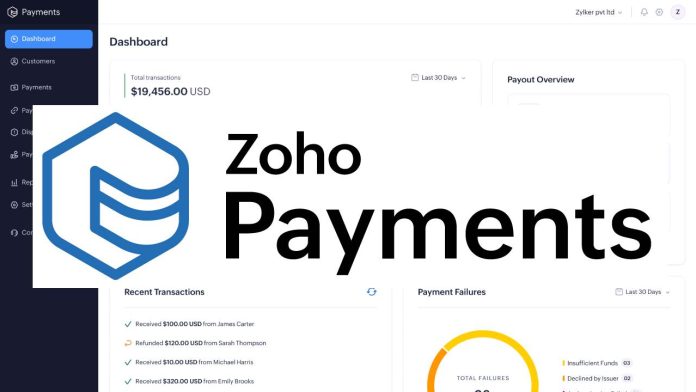Zoho Corporation has made a strategic entry into the U.S. payments market with the launch of Zoho Payments, a fully integrated solution aimed at simplifying how small and mid-sized businesses handle online transactions. The new platform promises to unify and streamline payment processing within Zoho’s extensive software ecosystem, offering a potentially game-changing tool for business owners seeking to modernize financial operations without adding complexity.
For small businesses, particularly those already using Zoho’s suite of applications, this move could significantly reduce the friction involved in managing digital payments. Rather than juggling multiple third-party payment portals, Zoho Payments allows companies to collect card and ACH payments directly within tools they already use, such as Zoho Books and other Zoho finance applications.
Raju Vegesna, Zoho’s Chief Evangelist, explained the impetus behind the product: “As digital payments become the default preference… businesses need a payment solution that not only offers flexibility, but is also tightly connected to their financial operations. Zoho Payments closes this gap by natively connecting with our ecosystem.”
That native integration is a key selling point. James Martin, Founder and CEO of Keystone Transport Services, highlighted the time-saving impact, stating, “Its automation capabilities ensured that there were minimal interventions by our teams, significantly reducing the required overhead… Now, one person can easily accomplish over 100 times the work as before.”
Zoho Payments supports card transactions in over 135 currencies and domestic ACH transfers, allowing businesses to transact globally while maintaining compliance and operational control. The platform is PCI DSS Level 1 compliant, emphasizing security and risk management.
The broader implication for small businesses is the potential elimination of redundant processes. From sending invoices with embedded payment links to managing recurring subscriptions or e-commerce checkouts, the platform covers a wide range of use cases. According to Zoho, this integration not only increases payment success rates and speeds up cash flow but also automates reconciliation and improves visibility into financial data like payouts, refunds, and failures.
Kevin Permenter, Research Director at IDC, views the development as transformative: “Moving beyond basic invoicing, these features streamline the entire payment lifecycle… Zoho has made a major investment in infusing their powerful finance platform with payment management capabilities and services.”
However, small business owners should weigh a few considerations. Zoho Payments charges 2.9% plus 30¢ per domestic card transaction and adds a 1.5% fee for international cards. While competitive, these costs may influence businesses processing large volumes or operating on thin margins. Also, while Zoho’s ecosystem is broad, businesses that rely heavily on non-Zoho tools may need developer resources to integrate via APIs.
Still, for those already embedded in Zoho’s environment, the benefits are clear: fewer tools, less manual work, and a more streamlined financial workflow. As Robert Kugel of the Information Services Group noted, “Users can reduce their use of external tools… simplifying the day-to-day operations of businesses.”
As digital payment preferences continue to dominate consumer behavior, Zoho’s entrance into this space reflects a broader shift. Tools like Zoho Payments could become indispensable for small businesses striving to stay agile and efficient in an increasingly cashless economy.



